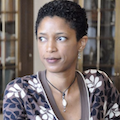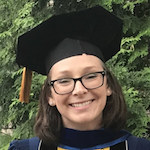Teaching Partners

Nicole Aljoe
Nicole N. Aljoe, ECDA Co-Director and Associate Professor of English and African American Studies at Northeastern University, uses the ECDA in both her Early African American Literature and Race, Slavery, and the 18th-Century Novel classes. In addition to reading primary texts, Aljoe's students also complete final projects based on work in the archive including: creating exhibits, timelines and maps, as well as writing headnotes and metadata for texts. “Working with ECDA allows me to develop more authentic literary studies activities for my students. It also allows them to experience the inherent dynamism of contemporary, engaged study of literary histories. And finally, and most important, it enables students to actively participate in academic knowledge production by providing key services to scholars and lay people interested in Early Caribbean cultures.”

Elizabeth Maddock Dillon
Elizabeth Maddock Dillon is Co-Director of the ECDA and Distinguished Professor of English at Northeastern University. She uses the ECDA in teaching undergraduate and graduate classes. In "Early American Literature: Print and Performance in the Atlantic World," students have built exhibits and written headnotes using ECDA primary sources. In "Literature and Digitial Diversity," students have worked with the ECDA as an example of archive-building that uses the affordances of digital technology to remix the archive and foreground new epistemologies and modes of knowledge production. "Working with the ECDA helps to show students that archives are not inert repositories, but sites where decisions are made about what counts as knowledge and what does not. I invite them to make those decisions."

Elizabeth Polcha
Liz Polcha, former ECDA Project Manager and PhD candidate in English at Northeastern University: "I assigned ECDA texts in a gender and sexuality literature class on colonial science and feminist writing. My students read excerpts from Maria Sibylla Merian's Metamorphosis Insectorum Surinamensium alongside Londa Schiebinger's historical scholarship on the history of abortifacients in colonial Surinam. We put these materials in conversation with Maryse Condé's novel I, Tituba: Black Witch of Salem and Olive Senior's Gardening in the Tropics. It was important for my students to understand the relationship between contemporary feminist Caribbean writing and the colonial archive, as well as the centrality of the Caribbean to colonial scientific knowledge production."

Victoria Barnett-Woods
Victoria Barnett-Woods completed her PhD in English literature, specializing in eighteenth-century Caribbean. Her work explores the role the events of the eighteenth-century Caribbean had on the "rise" of the novel and our contemporary understanding of modernity. In her class "Pirates, Slaves, and Witches: Reading the Eighteenth-Century British Caribbean," Barnett-Woods traces the rise and fall of the British imperial reign in the Caribbean and encourages students to consider how present-day authors wrestle with the legacies of slavery and an imperial past.
